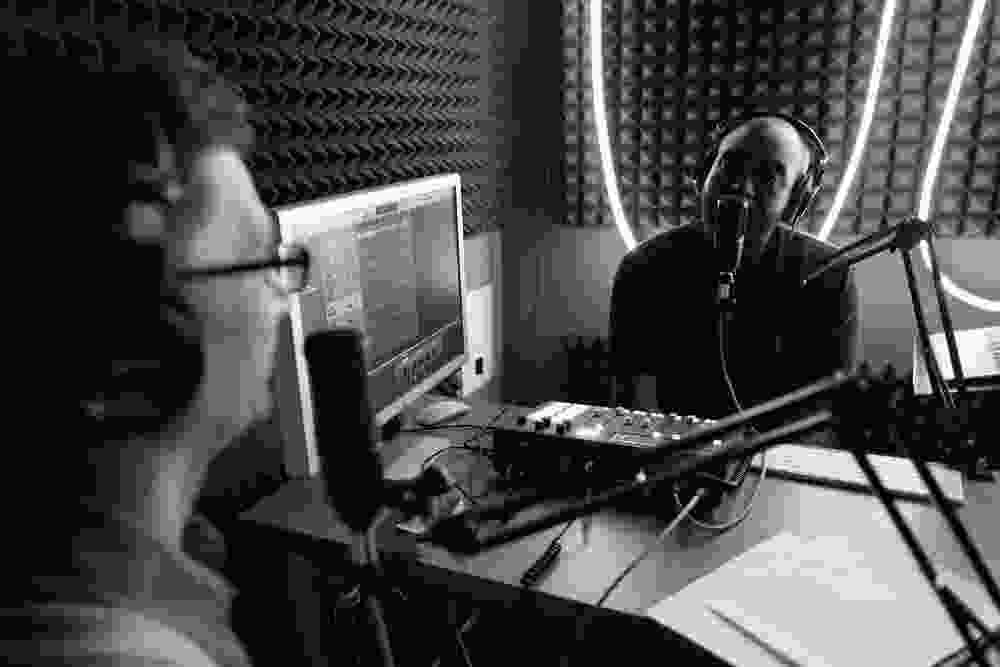Don't start a video podcast; go audio first
Transistor Team
Video is hot right now, but most new podcasters should start with an audio podcast. Here's my advice for aspiring podcast creators in 2024.
In the beginning, keep it simple
When I began podcasting back in 2012, all I had was a simple USB microphone and a cheap laptop. Believe it or not, that's still all you need to start. With an audio podcast, the barriers are low. You don't need a fancy DSLR, expensive lenses, professional lights, or a studio that looks ready for a Hollywood production. It's just you, your voice, and your ideas.
Focus on producing compelling content
The truth is all the equipment in the world won't matter if your content doesn't resonate with your audience. When you're starting, the question you should focus on is, "Can I create compelling content that attracts an audience episode after episode?"
Focus all your energy on crafting engaging audio for potential listeners. Think about the flow and structure of an episode:
How can you hook a listener's interest at the beginning of the episode?
What topics would my audience be interested in?
What would make someone recommend an episode to a friend?
How can I keep people coming back for more?
Practice, practice, practice
When I first started, I recorded dozens of episodes that never saw the light of day. Why? Because I was practicing, finding my voice, and learning how to craft narratives that would engage listeners.
Not having to worry about how I looked on video was a relief early on. Video adds several layers of complexity to producing episodes. By focusing on audio first, I could keep my practice routine simple:
Hit record,
Record my audio,
Listen to it and make notes on how I could improve,
Repeat.
Really, the voice memos app on your phone is all you need to practice podcasting. Just hit record and start talking about a topic you're passionate about. Repeat that until you feel good enough to record your first "real" episode.
Appearing on video is a lot of pressure
The beautiful aspect of audio podcasting is you don't have to worry about your physical appearance! Many creators don't want to appear on video because it introduces a new layer of pressure and scrutiny.
In the world of YouTube, TikTok, and Instagram, there's an unfortunate tendency to judge creators based on looks rather than the quality of their content. The message often implicitly sent is, 'If you don't look a certain way, you're not worth listening to.' This dynamic doesn't exist in audio podcasting, where you can only hear someone's voice.
For some, the anxiety around physical appearance is a significant barrier. It's not just about not feeling 'pretty enough'; it's about the constant self-consciousness and the mental toll of always having to 'look good' for the camera. This kind of pressure can stifle creativity and authenticity, which are the lifeblood of great content.
With audio podcasting, these concerns melt away. You're judged solely on the strength of your ideas, the quality of your storytelling, and the connection you forge with your audience. Your voice becomes your identity, not your appearance. This freedom allows for a more genuine, relaxed, and focused approach to content creation. It's liberating to not have to do video!
You can always add video later
Eventually, I upgraded my podcast setup to include video gear, but that was years into my podcasting journey.
Video can be valuable to a podcast's production, especially for promotional purposes. These days, I typically record video for myself and a guest using something like Riverside or Squadcast. Then, I'll edit the video interview into short clips I can use on TikTok, Instagram Reels, YouTube, Twitter, and Facebook.
But when you're just starting, video is a distraction. It's better to focus on producing something great before thinking about promotion. The best marketing in the world can't save a show that's not very good.
Start now, record your voice
So, my advice to new podcasters is this: grab a decent microphone, plug it into your phone, and start recording. Spend your time and energy honing your skills, finding your unique voice, and creating content that speaks to your audience.
Contrary to the current narrative, your podcast mustn't be on YouTube to succeed.
